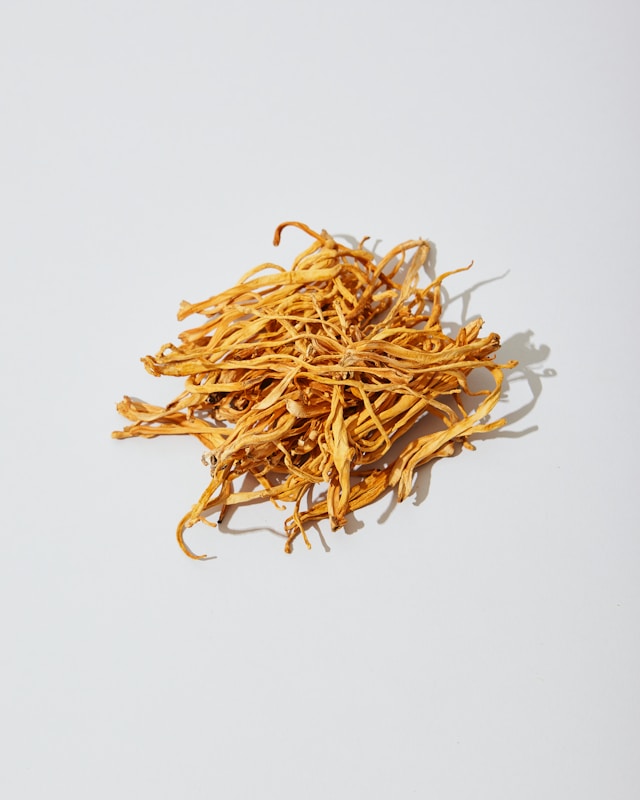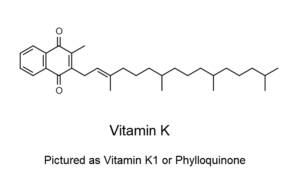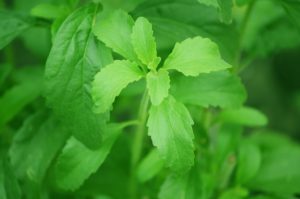Cordyceps Mushrooms

Cordyceps mushrooms are “zombie mushrooms.” They infect insects, turning them into zombies that sprout mushrooms from their heads that can then infect more insects. While somewhat terrifying for insects, fortunately, cordyceps do not infect human hosts, at least for now.
As a medicine, cordyceps have been used for centuries, often as a part of tonic formulas to improve stamina. Due to the fact that many species of cordyceps are threatened or endangered, only farmed varieties of cordyceps grown on brown rice or other substrates should be used medicinally to protect the cordyceps mushroom from extinction.
Potential health benefits of cordyceps include:
- Increased energy and stamina
- Improvements in cardiovascular function
- Anti-inflammatory effects
- Anti-cancer activity
Increased Energy and Stamina
A study of exercise performance in human subjects who were supplemented with cordyceps mushroom extract monitored grip strength during supplementation (Choi 2020). Along with modest improvements in grip, cordyceps was also shown to upregulate energy production throughout the body.
As we age, exercise performance declines. A study exploring cordyceps for exercise performance in older adults found improvements in metabolic and ventilatory thresholds during exercise after 12 weeks of cordyceps supplementation (Chen 2010). The results showed that metabolism improved, allowing for increased exercise capacity before lactic acid build up occurred.
Mouse studies also appear to confirm the effects on fatigue (Song 2015). Mice given cordyceps extract have been shown to have increased exercise stamina. They also had reduced lactic acid production with increased energy and antioxidant activity.
Improvements in Cardiovascular Function
Heart arrhythmias are irregular heartbeats, some types of which can be life threatening. An analysis of the research on human subjects found that cordyceps appeared to help regulate the heart, reducing arrhythmias more effectively than standard medication alone (Wang 2022).
Animal studies show other benefits, including a reduction in atherosclerosis or hardening of the arteries. Atherosclerosis is a major contributing factor to heart disease. In patients who receive organ transplants, organ rejection often causes increased atherosclerosis that isn’t effectively treated with immune suppressing medications. A trial in rats found that cordyceps was effective at decreasing transplant-induced atherosclerosis (Zhang 2012).
Other animal studies suggest benefits in protecting from heart damage during a heart attack (Li 2024). The herb also appears to provide benefits in helping to prevent heart related events through its antioxidant and anti-inflammatory activity while also improving blood flow (Li 2024).
Anti-inflammatory Effects

Rheumatoid arthritis is an autoimmune condition that causes joint pain and inflammation among other symptoms. A small non-placebo controlled study gave rheumatoid arthritis patients cordyceps and tracked them for a year (Ko 2021). Within two months, the patients had significantly improved pain, disease activity and quality of life. The authors noted that cordyceps may have potential as a treatment for rheumatoid arthritis.
A review of the preclinical research in animal models suggests anti-inflammatory activity that may be relevant in numerous additional conditions, including lung injuries, asthma, Parkinson’s disease, liver inflammation, heart disease and skin allergies (Tan 2020).
Anti-Cancer Activity
While cordyceps should not be thought of as a cancer cure, there is data suggesting that it may help with cancer treatment. An older study exploring its use in advanced cancer patients found that cordyceps improved immune function (Zhou 1995).
In China, cordyceps has been studied for its use in lung cancer combined with other treatments. A meta-analysis of the research that includes almost 1000 patients found that cordyceps improves tumor treatment response, immune function and quality of life for cancer patients (Wang 2024).
Conclusion
Cordyceps is a fascinating mushroom with a long history of medicinal use. While still somewhat limited, the latest research suggests potential with cordyceps for a number of conditions, including fatigue, inflammation, heart disease and cancer.



